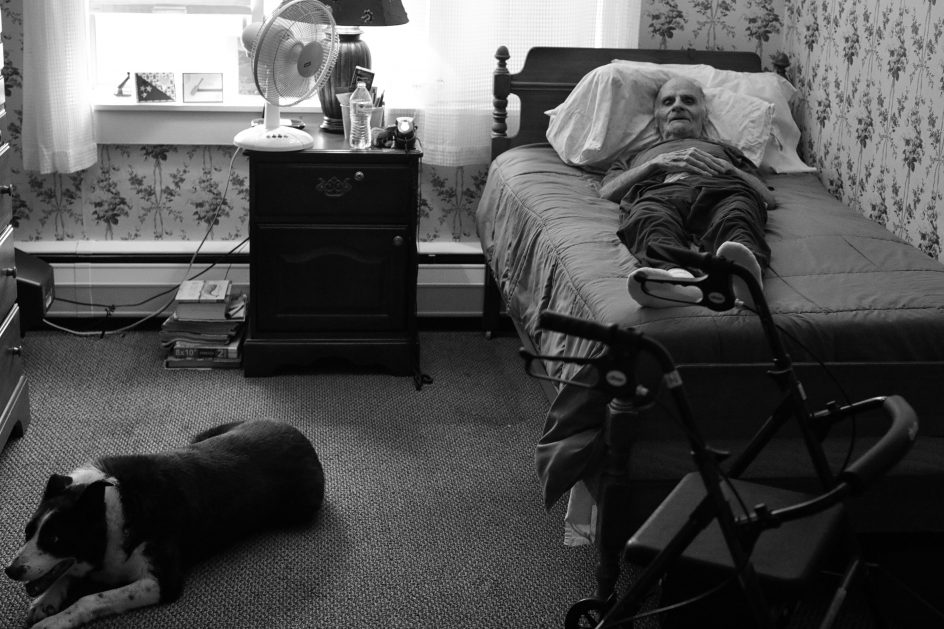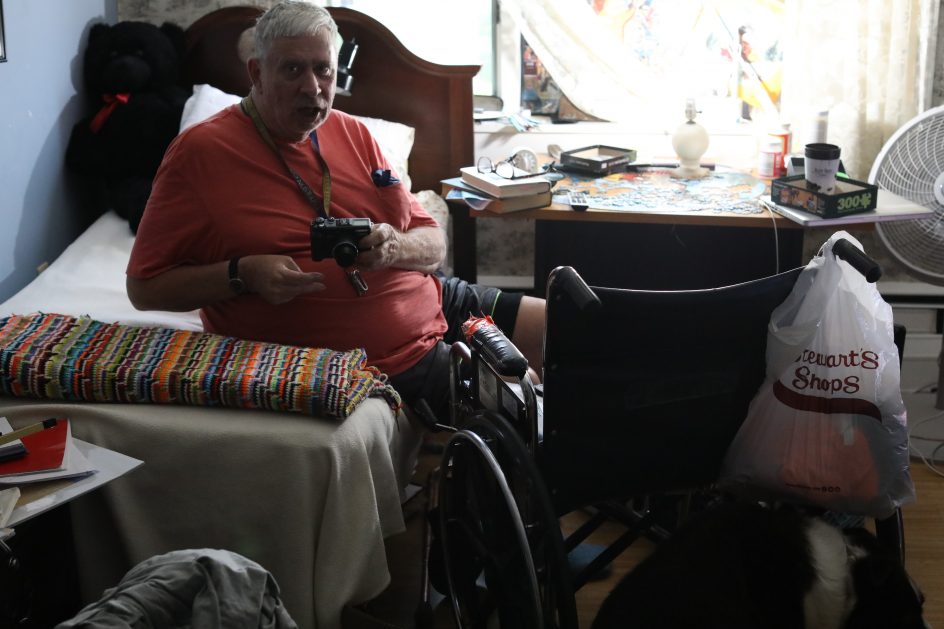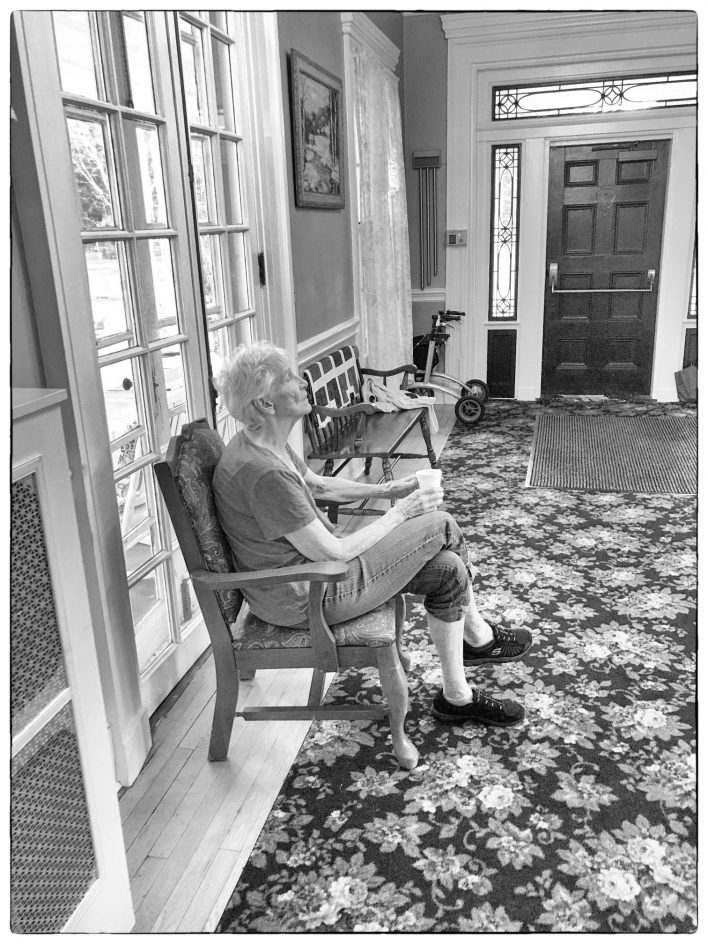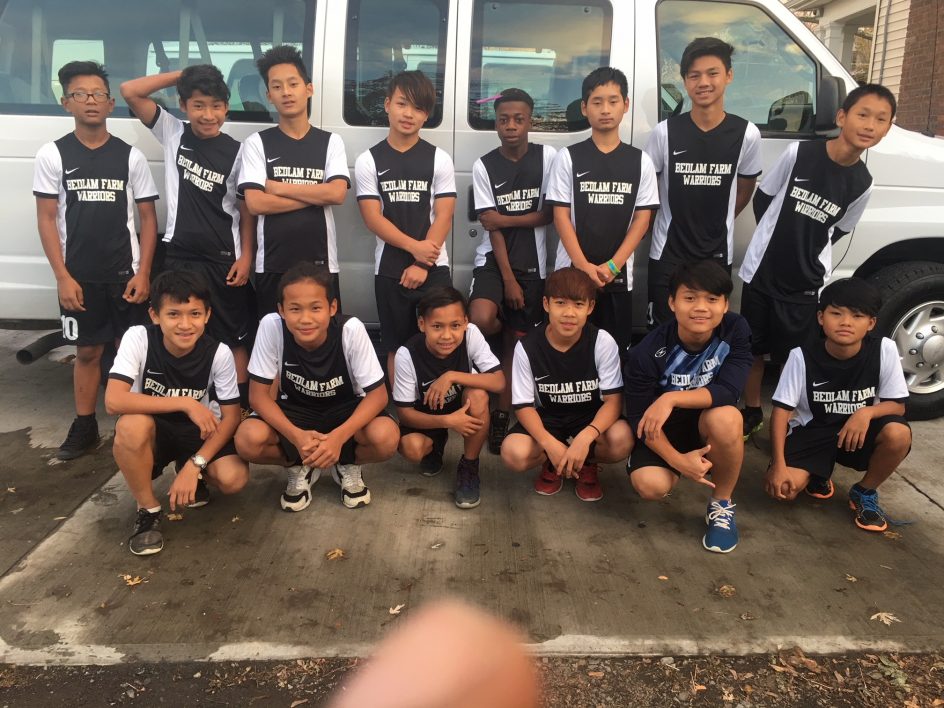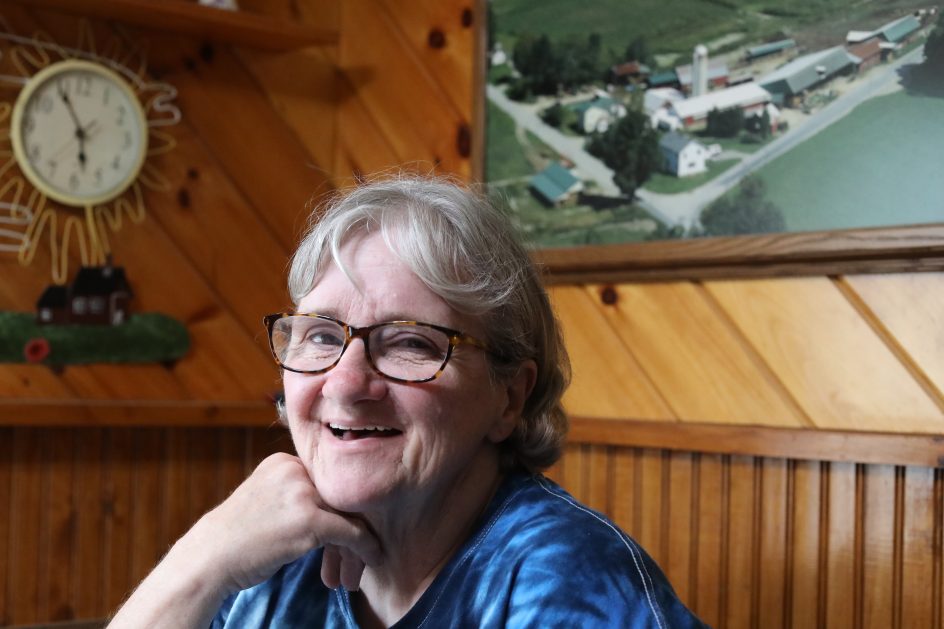
Ed knocked me off my pins last night when he pleaded with me to please help him die. I spent a lot of time wondering how to honor his wishes and also struggling to find the ethical boundary between loyalty to Ed and his wishes and respect for my position outside the rights of the immediate family.
I had no standing, as the judges sometimes rule.
Last night, I felt a whirl of emotions: anger at Ed’s family, which was working so hard to keep him alive and as healthy as possible; at hospice, for failing to step in and carry out his wishes, me for failing my promise to him to be his advocate and help him to somehow end a life that had become painful and without meaning for him. He was done, he told me. Enough was enough.
I didn’t like where I was going. I wanted to step back and just help out. I had no right to be angry at anyone. Today, visiting Ed in his home, I figured out what it was I needed to do.
Ed began taking morphine two nights ago and is now sleeping for most of the day and night. Every day, the people around him hope for him to sketch or paint again, or take a walk, or go outside, or somehow get out of that bed.
I believed Ed when he told me that he was done, and no longer wished to live he is living. But I didn’t know how to help him and also respect the role of Carol and the family.
She is my friend too. And no one loves Ed more than she does.
It was a tough position for me, and I didn’t see a way out of it. I am not one of those people who has all the answers, I mostly have all the questions.
Today, Maria and I went to the Gulleys, Maria re-organized the refrigerator, then sat in the kitchen talking to Carol, something both of them look forward to doing, and I went to sit with Ed and his new crow, which he has named Arnold.
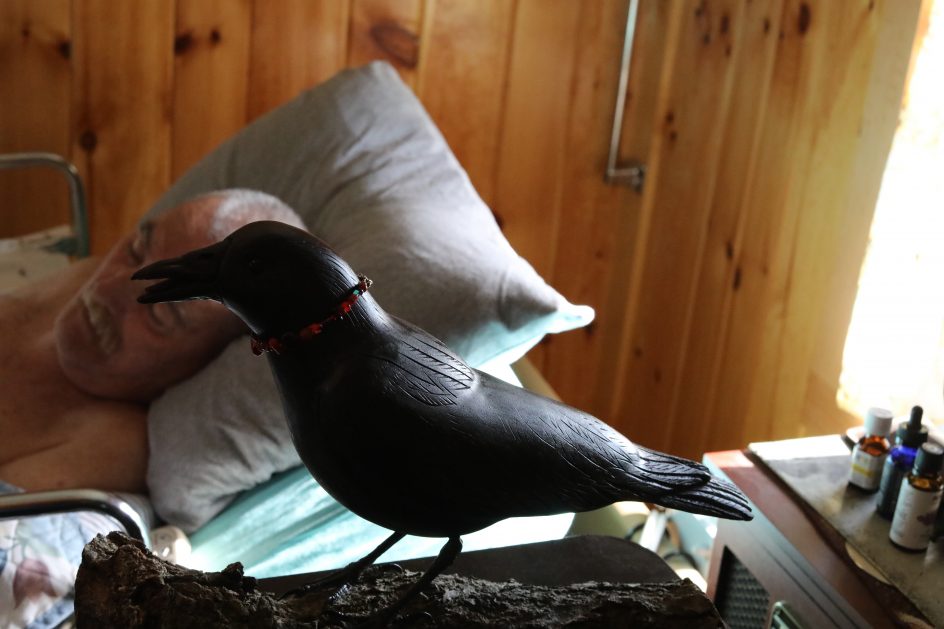
An Army Of Good member named Beverly sent me money some time ago and asked me to get a special gift for Carol, something she would never gotten for herself. I found it, a beautiful carved wood American crow.
Carol loves it.
Ed was awake for 15 or 20 minutes and we talked about baseball (I read the sports sites) the state of farming, his own testimony about the toll his brain cancer is taking on him. He wanted to know how Maria and I were doing.
Ed is sad and spiritually and emotionally exhausted. He is very uncomfortable and often in pain. He said he has said his piece about cancer and does not have much more to say.
This cancer is a relentless killer, and Ed is slowly slipping away. I believe Carol and his children see this and are accepting it in their own time and way.
And they must be left in peace to do that.
That certainly will mean some suffering for him, that is not avoidable, but the goal is to keep it to a minimum, to make him as comfortable as possible, and hospice knows how to do that.
As I sat silently with Ed – he fell asleep after a few minutes – a man named Jamie, a hospice nurse, came in to check on him.
Carol introduced us and I told Jamie I had worked as a hospice volunteer and I asked him if we cold talk, he has been seeing Ed and Ed likes and trusts him.
I could tell that Carol likes and trusts Jamie, so I did. Carol can smell a fake person a million miles away. And she is no good at hiding her feelings.
Jamie talked baseball with Ed for awhile, he is better at it than I am. Then I asked to speak with him, his arrival was a godsend for me, I knew what I had to do.
We stood off to the side, and I told Jamie that I thought he should know what Ed had told me, that he wanted me to help him die. He had begged me again and again to help him die.
I said I had no doubt that this was genuine, and that Ed wanted to stop living in this way. I believed he very much wanted to die.
I thought hospice ought to know.
Jamie listened carefully and he told me Ed had spoken to him about me, and he wanted to hear what I had to say. He was listening to me.
I said I wasn’t sure what to say to Ed or what to do.
I felt strongly that decisions about Ed’s life and death belonged to hospice and the family, I said, not to me, yet I also wanted to respect my friendship with him and help him if I could. He was begging me.
I told Jamie what I told Ed: I could not in any way help him to die other than making it clear to the other people in his life that this was what he really wanted. They could figure out how to proceed, it wasn’t my business beyond this.
Jamie suggested that I tell Ed he wasn’t ready to die, he was still very much here. When he was ready to die, he said, he would die.
I thought about this and said that wouldn’t work for me, it seemed slick, an evasion, even a lie, and I had promised Ed – he had made me promise – that I would never lie to him about his illness or death.
I didn’t think that answer would comfort Ed or truthfully respond to his plea. It wasn’t something either of us would ever say to the other.
Either I could help him to die or I couldn’t, I said.
And either way, he was entitled to an answer. I wasn’t a minister, I couldn’t offer him platitudes or generalities.
I understood Jamie’s position too, he was trying to help, it wasn’t any easier for him than for me.
Then he touched my arm and came closer and looked me in the eye.
“I appreciate what you are saying,” he said, “and I thank you for telling me this. It is something we really need to know. I want to reassure you, to tell you in all truth that we will never let Ed suffer, we will make him comfortable and free of pain. It is up to him when he dies…”
Is that a promise?, I asked. Yes, he said, it was a promise. And we shook on it.
I thought this was a good answer. I felt it was sincere and honest. I felt this was something I could tell Ed in good conscience that he would understand and accept.
Jame was telling me that hospice was on it, and he said again that they would make sure that Ed did not suffer greatly or for any great period of time.
This was what I wanted and needed to hear.
We both knew that this cancer – giobiastoma – is aggressive and relentless. There are no miracles.
Without chemotherapy or other treatments, it almost never takes longer than a few months for victims of this cancer to die. And Ed had ten active tumors in his brain months ago.
I have known from the beginning and have seen a number of times that the end stage of cancer is an intense ballet between hospice, the family, the patient, and the cancer itself. It is not a simple decision, it is many decisions, changed and altered many times, over days and days.
When the time comes, the principals all talk to one another and seek consensus about how to proceed. This satisfied me. It relieved my deep anxiety and discomfort. If I was honest, it respected my friendship. I didn’t run from it.
I didn’t wish to be on a different side than Carol or the family there was no side for me to be on except to help and be a friend.
When Jamie left, I sat down next to Ed and I told him that I could not help him die, that would be a grievous overstepping of my own role and a great and cruel disservice to his family which loved him as much or more than I did. It would be painful to Carol and his children and grandchildren.
I said I believed that he needed to trust them and be honest with them. I would be here to help every day, but I could only help him to live comfortably, not to die. And I would, if necessary, remind everyone of his wishes.
I said I wish I could promise him no pain, but that would be a lie. I said I believed it would be quick, but no one could know for sure.
One day, perhaps in a generation, I said we would all be able to have some clearer say in how and when we leave the world if we are dying and in pain. That day is coming, but that is not our world right not, not even in New York State. These are the cards he was dealt.
That was the truth of it. I promised him that no one would let him suffer endlessly.
He was quiet, his eyes were open, he was taking this in. He just looked at me for less than a whisper, then whispered a small “thank you,” and then he drifted off to sleep.
I feel okay now. All of that anger and concern is gone. I feed badly for Ed.
The real question, of course, is not whether or not I would help him to die.
I would do what I always try to do. I would do the best I can for as long as I can.
You can follow the Bejosh Farm Journal here.

